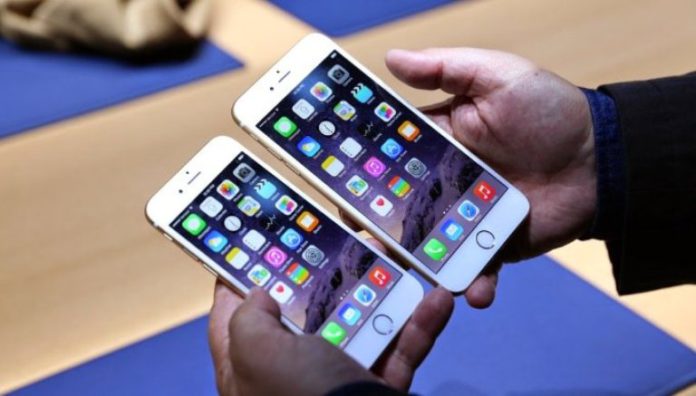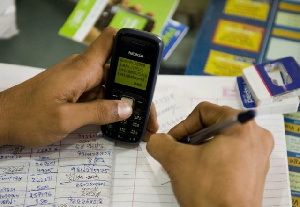Your Guide to Starting a Refurbished iPhone Business in Ghana

Ghana’s vibrant tech market presents a fertile ground for entrepreneurs, and the demand for affordable, quality smartphones is consistently high. While brand-new iPhones remain aspirational for many, a thriving refurbished iPhone business offers a compelling solution, bridging the gap between desire and affordability. Here’s a comprehensive guide to launching and succeeding in this exciting venture.
1. Market Research: Understanding the Ghanaian Landscape
Before diving in, thorough market research is paramount.
- Demand: Assess the specific iPhone models that are most sought after. Newer models like iPhone 11, 12, and even 13 series often have strong demand, but older, more budget-friendly models (iPhone 7, 8, X) still have a significant market.
- Pricing: Analyze current market prices for both new and used iPhones to strategically position your refurbished products. Look at online marketplaces like Jumia Ghana and Jiji.com.gh.
- Competition: Identify existing refurbished phone sellers and understand their strengths, weaknesses, pricing strategies, and customer service.
- Target Audience: Who are you selling to? Students, young professionals, small business owners? Tailor your marketing and inventory accordingly.
- Repair Services: Consider if you’ll offer in-house repairs or partner with local technicians, which can be a valuable add-on service.
2. Sourcing High-Quality Refurbished iPhones
The success of your business hinges on the quality of your products. Avoid cheap, poorly refurbished phones that will damage your reputation.
- Reputable Wholesalers: Seek out established refurbished phone wholesalers. Look for companies with a proven track record, clear grading systems (e.g., A-grade, B-grade), and warranties on their products. Some popular global options include:
- Mobile Reborn (UK): Known for high-quality refurbished devices.
- Reboxed (UK): Focuses on certified refurbished electronics.
- https://www.google.com/search?q=UsedNet.com (USA): A marketplace for used electronics.
- Local Wholesalers (if available): Explore if there are reliable local suppliers who import in bulk.
- Direct from Refurbishers: Some larger companies specialize in refurbishing and may offer direct wholesale pricing.
- Grading System: Understand the grading system used by your supplier.
- A-Grade: Near-perfect cosmetic condition, fully functional.
- B-Grade: Minor cosmetic imperfections (scratches, scuffs), fully functional.
- C-Grade: More noticeable cosmetic wear, fully functional.
- Warranty and Returns: Ensure your supplier offers a reasonable warranty and clear return policies in case of faulty devices. This provides a crucial safety net for your business.
- Testing Procedures: Inquire about their refurbishment and testing procedures. Do they replace batteries, screens, and other components with genuine or high-quality aftermarket parts?
3. Legal and Regulatory Compliance in Ghana
Operating legally is crucial for long-term success.
- Business Registration: Register your business with the Office of the Registrar of Companies (ORC). You can register as a sole proprietorship, partnership, or limited liability company.
- Tax Identification Number (TIN): Obtain a TIN from the Ghana Revenue Authority (GRA). This is essential for all tax and customs procedures.
- Import Regulations:
- Ghana Standards Authority (GSA): Electronics, including phones, are considered “High Risk Goods.” You’ll need to register as an importer with the GSA. Imported electronic goods must meet Ghanaian standards and may require a Certificate of Conformity (CoC) from an approved body like Intertek. Failure to provide a CoC can lead to delays and penalties.
- Customs Clearance: Work with a reliable customs broker or clearing agent to navigate the import process, accurately declare goods, and pay duties and taxes. Be aware of VAT (currently 15% plus other levies like NHIL, GETFund, COVID-19 Levy, etc.) and potential import duties on electronics.
- Labelling Requirements: Ensure your imported products comply with GSA labelling requirements, including the name and address of the manufacturer, country of origin, date of manufacture, batch/lot number, and warranty information (at least six months for electronics).
- Licenses and Permits: Depending on the scale and nature of your business (e.g., if you plan to do repairs), you might need additional permits. Consult with the relevant municipal authorities.
4. Setting Up Your Operations
- Location:
- Online Store: A well-designed e-commerce website (e.g., Shopify, WooCommerce) is essential for reaching a wider audience.
- Physical Presence: A small retail space or kiosk in a high-traffic area (e.g., market, shopping mall) can build trust and allow customers to inspect devices.
- Combination: A hybrid model, combining an online presence with a physical pick-up point or showroom, is often ideal.
- Inventory Management: Implement a robust system to track your inventory, sales, and returns.
- Payment Gateways: Offer multiple payment options, including mobile money (M-Pesa, Vodafone Cash, MTN Mobile Money), bank transfers, and potentially card payments.
- Logistics and Delivery: Determine your delivery strategy. Will you use local courier services, or offer in-store pickup?
5. Marketing and Sales Strategies
- Competitive Pricing: Offer competitive prices that reflect the quality and condition of your refurbished iPhones.
- Transparency: Be upfront about the condition of the phones, their grading, and any replaced parts. Provide high-quality photos and detailed descriptions.
- Warranty: Offer a clear and reasonable warranty on your refurbished iPhones (e.g., 3-6 months). This builds customer confidence.
- Customer Service: Excellent customer service is key to building a strong reputation and fostering repeat business. Be responsive to inquiries and handle any issues professionally.
- Social Media Marketing: Leverage platforms like Facebook, Instagram, and TikTok to showcase your products, run promotions, and engage with potential customers.
- Local Partnerships: Collaborate with local phone repair shops, accessories vendors, or even mobile network operators.
- Referral Programs: Encourage satisfied customers to refer new clients with incentives.
- Bundle Deals: Offer packages that include accessories (screen protectors, cases, chargers) to increase average transaction value.
6. Value-Added Services (Optional but Recommended)
- iPhone Repair Services: As mentioned earlier, offering repairs can be a significant revenue stream and attract customers.
- Accessories Sales: Stock and sell essential iPhone accessories like chargers, cables, screen protectors, and cases.
- Trade-in Program: Allow customers to trade in their old phones for a discount on a refurbished iPhone.
- Software Support: Offer basic software setup or troubleshooting assistance.
Challenges to Anticipate
- Counterfeit Products: Be vigilant against counterfeit iPhones and components. Source from trusted suppliers.
- Customs Delays and Duties: Prepare for potential delays and ensure you budget accurately for all import costs.
- Warranty Claims: Have a clear process for handling warranty claims and repairs.
- Market Fluctuations: iPhone prices can fluctuate based on new releases and market demand.
- Customer Perception: Overcome any negative perceptions some customers might have about refurbished devices by emphasizing quality, testing, and warranty.
Starting a refurbished iPhone business in Ghana requires diligence, strategic sourcing, and a strong commitment to customer satisfaction. However, with the right approach, you can tap into a substantial market and build a profitable and reputable enterprise.
Watch this podcast below to have more idea about Ghana Market in iPhone:
Source: http://thepressradio.com





